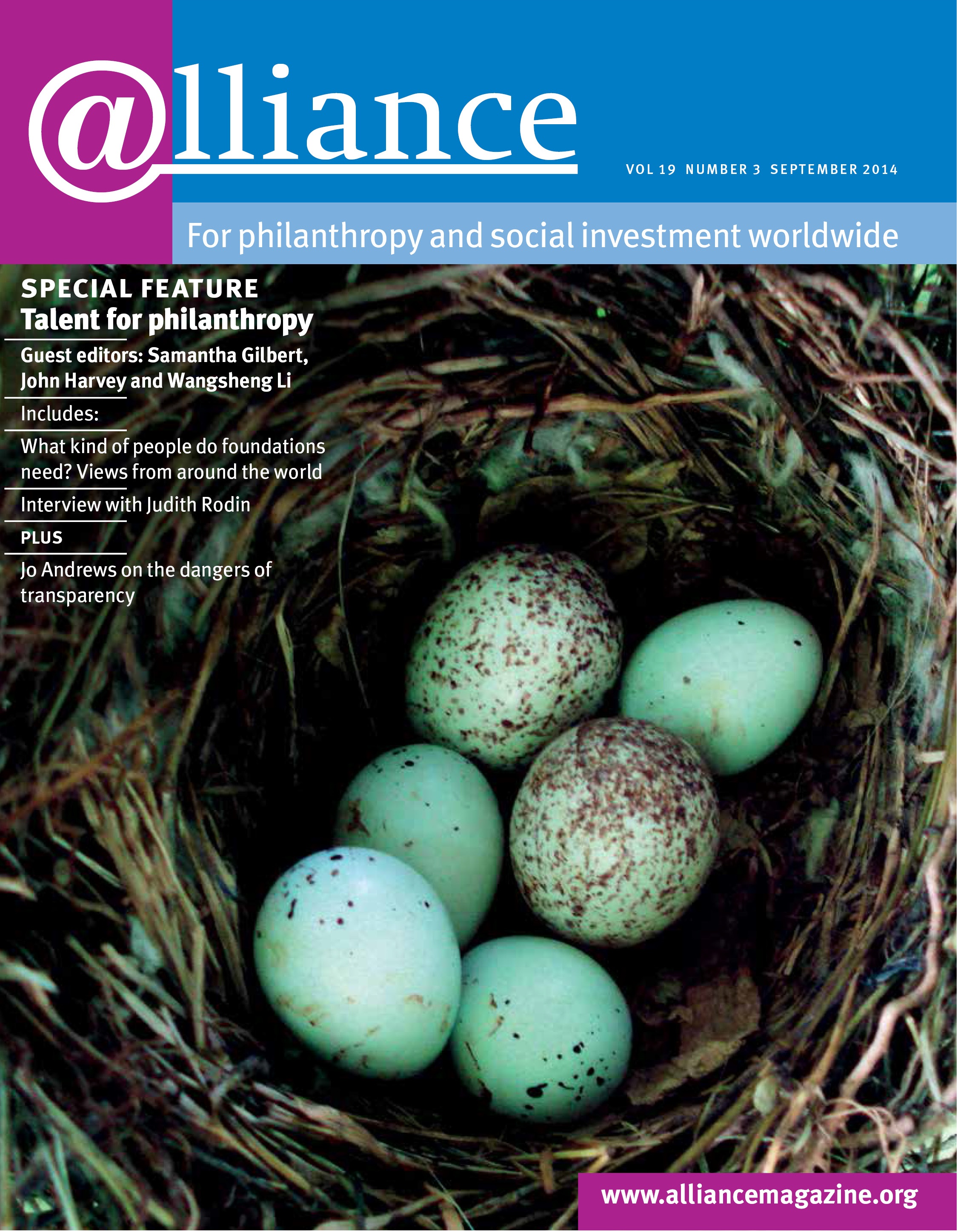For the last ten years UBS has been advising ultra high net worth (UHNW) individuals and families all around the world on how to realize their philanthropic aspirations. Philanthropy is increasing – many are calling this the second ‘golden era’ of philanthropy – and there is no doubt that efforts by private philanthropists have contributed to hundreds of millions of people living longer, healthier lives. Often cited examples are the financing of the earliest microfinance programmes by Ford Foundation, among others, and Gates’s support for vaccination programmes and eradication of key diseases like polio. Despite such examples, the reality is that private philanthropy is still far from being as effective as it could be.
From our work at UBS, we see a number of reasons for this.
Passion and good intentions are not always enough Philanthropists don’t get significantly engaged for the long term unless there is passion, yet passion by definition is not strategic. When we ask philanthropists why they got involved, they usually mention a specific moment of understanding such as ‘I went on a trip to this country and was appalled to see children living on the streets’.
Most philanthropists want to start their own effort Much of western philanthropy follows an individualistic tradition and philanthropy is often seen as a means of self-expression. Despite the rhetoric around collaboration, most people who care about an issue want to do something that they can shape themselves. Collaboration can be an afterthought.
Few philanthropists are willing to take risks Most philanthropists want some outside confirmation that what they are doing is good, partly because quality and impact are difficult to assess. So they prefer to follow tried and accepted approaches rather than more innovative and inherently riskier approaches which could offer higher social returns.
We see five key areas for private philanthropists to help improve the effectiveness of their philanthropy:
Strategic giving and assessing impact By strategic giving we mean a planned approach to funding programmes which generate maximum impact. Many philanthropists struggle between following their passion and thinking about impact. They also face difficulties in assessing impact, and are not always aware of efforts in this area. We need to help move the needle in the direction of more strategic philanthropy and a broader take-up of social impact measurement.
Activism and collaboration Collaboration suggests some coordination of efforts between and within sectors and knowledge of who else is active in the field and what solutions exist. It must be combined with activism – assessing the problem and committing to doing something to solve it. It can be difficult to reconcile the tensions philanthropists feel between starting their own efforts and working with others. It is imperative to look at ways to foster collaboration.
Innovation and risk taking Private philanthropists can in theory take risks, respond with agility and take a long-term view, yet in practice few actually do. A number of failures would be expected for a handful of successes – yet philanthropists are rarely open about what didn’t work. We should look at how philanthropy can support innovation and mitigate known and foreseeable risks.
Scaling up One key challenge for philanthropists is how to replicate and scale successful initiatives, especially as this often means working with government, international organizations and/or the private sector. There is limited knowledge on how to scale up successfully. We need to explore how best to build on success.
New philanthropic and financial models Many new hybrid models are emerging, both philanthropic vehicles and funding approaches (loans, guarantees, contracts, equity, impact investing, etc), while technology is creating a whole new world of possibilities. Many philanthropists are wondering if the model of a grant-giving foundation is still the most relevant one. We need to help philanthropists understand the options and find the best ones for their objectives.
Over the next few years, we will work on these challenges and opportunities. From our exclusive UBS Global Philanthropy Forum through to reports that we publish regularly, we aim to catalyse discussions to develop the philanthropic sector. By sharing this perspective we hope to encourage more open debate and work with others to find solutions. We strongly believe that private philanthropists can help to change the world for the better.
Silvia Bastante de Unverhau is head of Philanthropy Advisory at UBS. Email silvia.bastante@ubs.com






Comments (0)